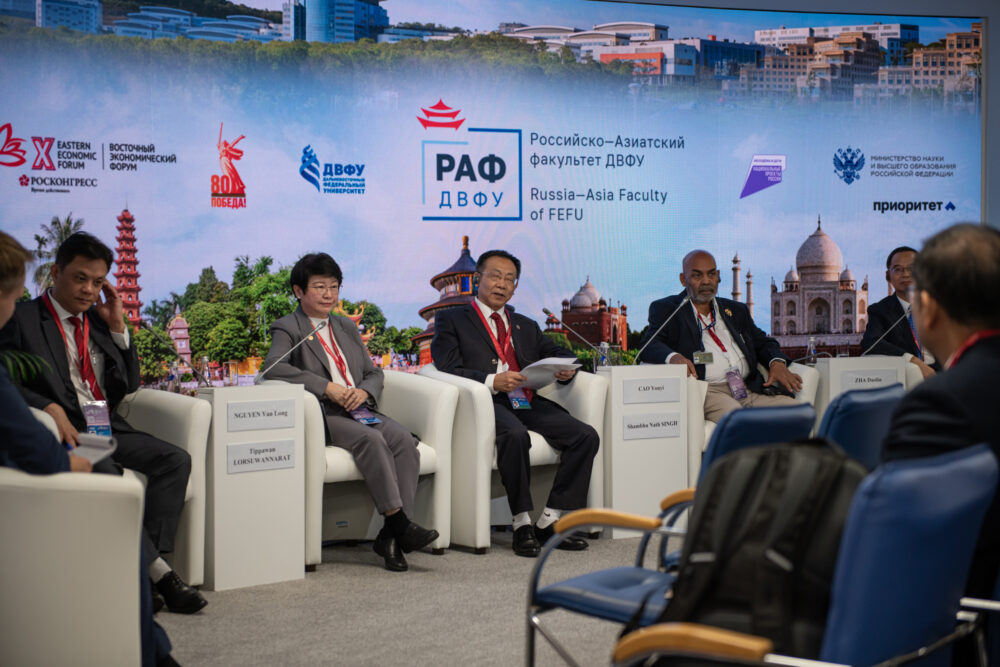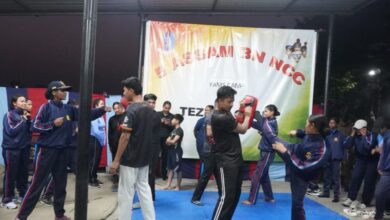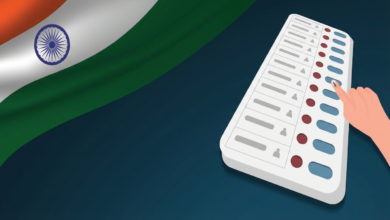
In order to explore research work and other related areas of mutual interest, Tezpur University has signed a Memorandum of Understanding (MoU) with the Far Eastern Federal University (FEFU), Vladivostok, Russia on September 03, 2025. FEFU is a prestigious public university located in Vladivostok, Russia. Established in 1899, it is one of Russia’s leading educational institutions, offering a wide range of programs, including medicine, engineering, humanities, and natural sciences.
The MoU was formally signed by Prof Shambhu Nath Singh, Vice Chancellor, Tezpur University and Prof. Evgeny E Vlasov, Vice President for International Relations, FEFU. The MoU was inked on the sidelines of Eastern Economic Forum currently being held in Vladivostok, Russia. Prof. Subhrangshu Sekhar Sarkar, Director, International Affairs, Tezpur University was also present on the occasion.

The MoU calls for various areas of activities that include intention to establish joint dual degree educational programs in the field of Construction and Civil Engineering, intention to implement research work on Construction, Civil Engineering, Machine Learning, Artificial Intelligence and other related areas of mutual interest. The MoU will also open various other activities including field trips, exchange of students, exchange of faculty members, joint research projects, joint conferences; joint cultural programs and any other joint activities as agreed upon by both Parties. The MoU will be effective for a period of 5 years.
Prof Shambhu Nath Singh, in his speech at the MoU signing ceremony mentioned that Russia has a remarkable tradition of engineering resilience, born from experience in diverse and often extreme climatic conditions. Indian engineers, on the other hand, have honed their ability to execute large-scale projects swiftly and efficiently, often within the constraints of time and resources. He appreciates the unique opportunity to nurture a new generation of engineers—professionals who are both innovative and practical, strategic and adaptable.

He also expressed that such collaboration would also broaden the horizons of Tezpur University students. He expressed that exposure to two distinct educational ecosystems, research cultures, and societal needs would make the students more agile in responding to complex global problems.









